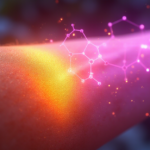Table of Contents
- How DNA Ancestry Testing Works
- What Your Genes Can Reveal About Your Heritage
- The Limitations and Ethical Concerns of DNA Ancestry Testing
- Extra’s:
How DNA Ancestry Testing Works

Ever thought about your genetic legacy? From whence were your ancestors? Maybe the concept of DNA ancestry testing—a common approach to find your genetic background—has captivated you. But practically, how does it work? The science of DNA ancestry testing, how businesses examine your genetic data, and what your DNA may tell about your ancestors will all be covered in this article.
The Science Behind DNA Ancestry Testing
DNA ancestry testing depends on ideas of population genetics and genetics. Your DNA, the blueprint of your biological composition, tells about your background. One inherits half of their DNA from their mother and half from their father. Scientists can follow your genetic lineback throughout generations thanks to this pattern of inheritance. One must first grasp the idea of genetic markers if one is to grasp how DNA ancestry testing operates. These particular DNA sequences differ between people and populations and offer information about our ancestry.
How DNA Ancestry Testing Works
Usually using a technique known as autosomal DNA testing, companies selling DNA ancestry testing kits examine your genetic composition. Here is a condensed justification:
- Saliva Collection: You’ll receive a kit containing a swab for collecting your saliva.
- DNA Extraction: The lab isolates your DNA from the saliva sample.
- Genotyping: Your DNA is analyzed to identify specific genetic markers that vary across populations.
- Database Comparison: Your genetic markers are compared with a vast database of DNA samples from various populations around the world.
- Ancestry Estimates: Based on the similarities and differences between your genetic markers and those in the database, the company generates estimates of your ancestry.
This procedure can help you find your ethnic roots, track your mother’s and father’s lineages, and even find startling links to far-off cousins.
DNA ancestry testing is not exactly a science, as one should realize. It depends on statistical estimations grounded in the company’s database’s available data. The company and the volume and variety of its database will affect the outcomes. But thanks to the availability of DNA ancestry testing kits and continuous genetic study, we are learning more about our common human past and the complex relationships that bind us all.
What Your Genes Can Reveal About Your Heritage

Ever given your family’s past some thought? Perhaps you seen commercials for DNA ancestry testing kits and pondered, I wonder what my heritage is? Although DNA ancestry testing has grown in popularity, what actual information these tests provide on our ancestral origins? Let’s venture into the realm of genetics and learn about your background via your DNA.
How DNA Tests Can Help You Trace Your Genealogy
Imagine following your family tree back hundreds of years; this is what DNA ancestry testing can assist you to do! Finding where your ancestors came from and how they moved throughout time is like trying to put together a remarkable puzzle. Thanks to genealogy and population genetics, which clarifies how our genes are passed on across generations, this is achievable. Half of our DNA comes from our mother and half from our father; this inheritance pattern lets researchers follow your genetic lineage back to your ancestors.
For instance, I was shocked to find a modest amount of Native American ancestry when recently doing an ancestry test. Since my family history has traditionally centered on European roots, this discovery set off a search to understand more about my forebears and probable ties to indigenous traditions.
Understanding Your Genetic Markers
How then do these tests really function? Most DNA ancestry tests combine multiple phases into their methodology:
- Saliva Sample: You’ll receive a kit with a swab to collect your saliva.
- DNA Isolation: The lab separates your DNA from the saliva sample.
- Genetic Markers: Scientists analyze your DNA to identify unique genetic markers. These are specific variations in your DNA sequence that differ across populations. The genetic markers are like clues that can point to your ancestors’ geographical origins.
- Database Comparison: Your genetic markers are then compared to a massive database of DNA from people around the world.
- Ancestry Estimates: Based on the similarities and differences found, the company provides estimates of your ancestry, often broken down by percentage.
Ancestry testing can help you find your roots, investigate your line of descent, and even unexpectedly link yourself with far-off relatives. Although ancestry testing can be rather perceptive, it’s crucial to keep in mind that it’s not flawless. Other elements as well as the size of the company’s database and the particular genetic markers they examine can affect the outcomes. But as databases expand and technology develops, we are learning more about our common human past and the complex relationships tying all of us together.
All set to access your own family past? Investigate the several DNA ancestry testing companies on the market to find out about your background from your genes!
The Limitations and Ethical Concerns of DNA Ancestry Testing

Ever wonder from where your ancestors came? Perhaps you have even looked to learn by doing a DNA ancestry test. These tests provide a window into your genetic background and can be quite interesting, pointing up surprising relationships. But it’s crucial to understand the ethical questions and restrictions of genetic genealogy before diving into your findings.
Understanding the Limitations of DNA Ancestry Tests
Though they’re not perfect, DNA ancestry tests can offer insightful analysis of our family background. Consider them as a launching pad for your genealogical search rather than the definitive response. The following should help you keep some perspective:
- Database Bias: The accuracy of DNA ancestry tests heavily depends on the size and diversity of the company’s database. If the database lacks representation from specific populations or geographic regions, the results may be skewed. Imagine a database focusing mostly on European populations – it might struggle to accurately pinpoint ancestry for individuals with roots in Africa or Asia.
- Limited Markers: Most DNA testing kits focus on a limited set of genetic markers. While these markers provide valuable information, they don’t capture the full complexity of our genetic heritage. This limitation means that the results may not be entirely comprehensive or accurate.
- Estimated Percentages: DNA testing relies on estimated percentages, meaning the results are not definitive. The percentage breakdowns of your ancestry may vary depending on the company and the algorithms used. For instance, one company might estimate your ancestry as 50% Irish and 50% Italian, while another company might estimate it as 40% Irish, 40% Italian, and 20% Spanish.
Finding that my findings showed a modest amount of Scandinavian heritage shocked me. My family is Italian, hence this was surprising. After hours of study on past migration trends, I discovered that my great-great-grandmother was born in Sweden prior to immigration to Italy. Seeing how DNA testing might expose unanticipated links to our past was intriguing.
Ethical Considerations in DNA Testing
Beyond the constraints, DNA testing begs serious moral issues. These are some factors to give thought:
- Commercialization of Genetics: The rise of direct-to-consumer DNA testing raises concerns about how our genetic information is used and who profits from it. Companies profit from selling our genetic data, leading to questions about ownership and consent. What happens to your genetic information after you take a test? Do you have control over how it’s used? These are important questions to consider.
- Misinterpretation of Results: Some people may misinterpret their DNA test results and mistakenly use them to define their entire identity or make generalizations about their ancestry. Remember, your DNA test results are just a snapshot of your genetic makeup – they don’t tell the whole story.
- Potential for Discrimination: There’s a risk of discrimination based on genetic information, especially if it’s used in areas like employment, insurance, or healthcare. For example, employers might use genetic information to make hiring decisions, or insurance companies might use it to deny coverage. It’s crucial to protect our genetic information from being misused.
- Family Secrets and Unexpected Relationships: DNA testing can sometimes uncover family secrets or unexpected relationships, leading to complex emotional consequences. These discoveries can be challenging to process, especially if they involve sensitive family history or personal relationships. It’s important to approach this sensitive information with care and respect.
Though it can be an interesting and entertaining process, DNA testing should be approached critically. Share your genetic data knowing the ethical consequences and restrictions involved. Research the company’s data policies and make sure you know how they will be using your information before you choose to have a DNA test. The National Human Genome Research Institute’s website offers further details regarding DNA testing and possible advantages and disadvantages.
Extra’s:
If you’re curious about the intricate world of microscopic creatures, you might be interested in our post on “The Unseen Crisis: Protecting Our Endangered Microfauna“. This post delves into the vital role these often-overlooked organisms play in our ecosystems and explores the threats they face.
For further insights into the complexities of DNA ancestry testing, we recommend exploring “DNA ancestry tests — and their many caveats — explained | Vox.” This article provides a comprehensive overview of the science behind these tests and highlights their limitations. Additionally, you can learn more about the ethical considerations surrounding DNA testing in “Ethical Considerations in DNA Testing: What You Need to Know.” This piece explores the potential risks and benefits associated with genetic analysis, emphasizing the importance of informed consent and data privacy.












2 thoughts on “The Science Behind DNA Ancestry Testing: What Your Genes Can Reveal”